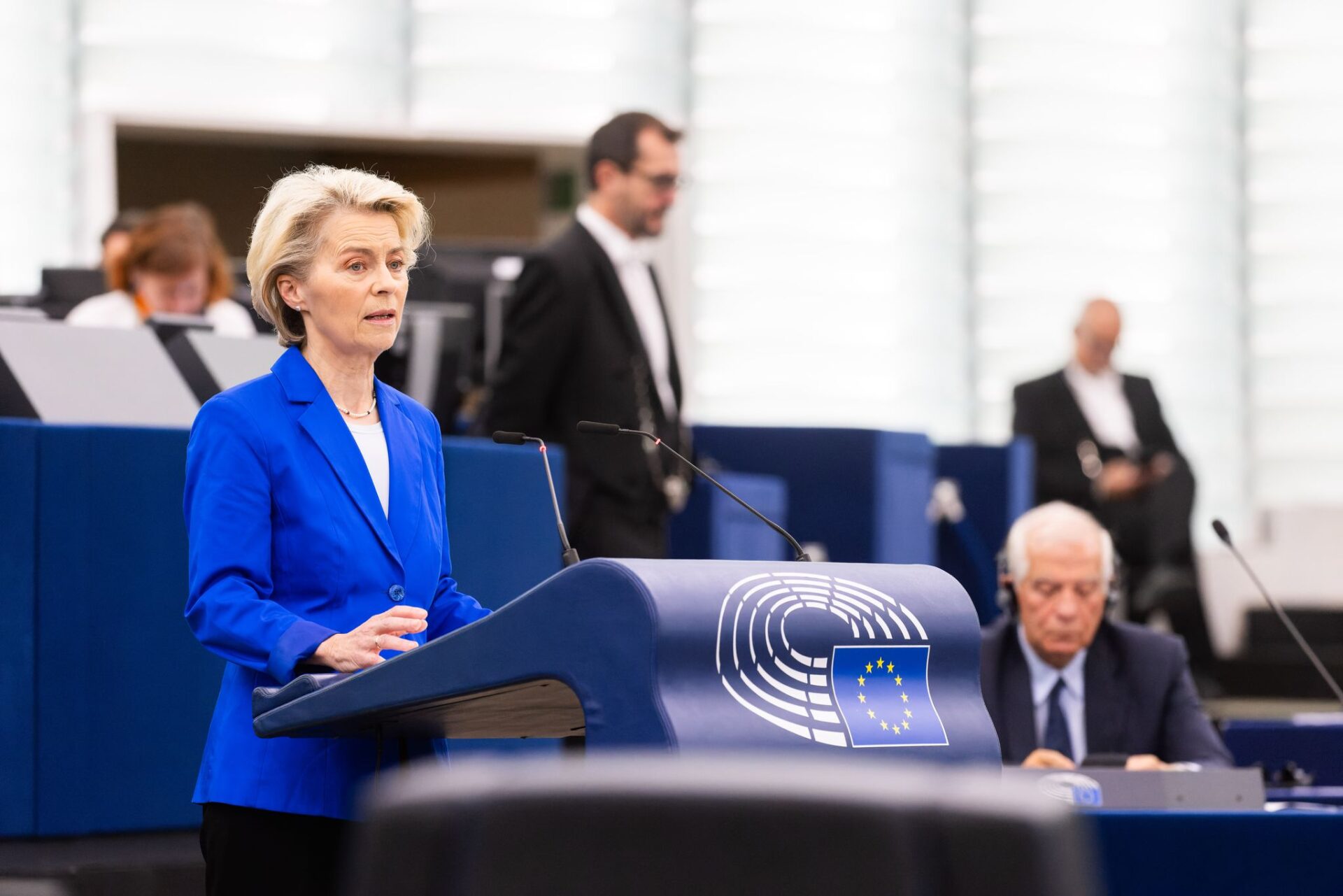 Have the article read by OpenAI (Beta). Please note that AI translations may take some time to process.
Have the article read by OpenAI (Beta). Please note that AI translations may take some time to process.Ursula von der Leyen wants better protection of Jewish life in Europe
Strasbourg (dpa) – Jewish life in Europe must be better protected, according to European Commission President Ursula von der Leyen. The increase in anti-Semitic incidents including desecrated synagogues, incitement and fake news was simply unacceptable, she said in a debate on the terrorist attack by Islamist Hamas against Israel in the European Parliament on Wednesday. She stated it was our shared responsibility to ensure that the dark past did not return.
Specifically, von der Leyen promoted the commission’s proposal to add hate crimes and incitement to the list of EU criminal offenses that must be sanctioned throughout the Union. It was time for member states to act, she said, referring to their legislative powers. EU funding for the protection of places of worship, such as synagogues, had already been increased, von der Leyen said. In addition, the Commission is currently investigating whether the platform X, formerly known as Twitter, is fulfilling its obligation to counter the spread of terrorist propaganda and incitement.
“Europe’s history is a history of diversity,” von der Leyen said. “European Jews must be able to wear a kippah or a Star of David on our streets and bring light to our cities with the candles they put in the windows for Hanukkah. We must make good on Europe’s promise to be united in diversity to be a safe place for all Europeans,” she added. (October 18)
France insists on recognition of role nuclear power can play in low-carbon hydrogen production
Berlin (AFP) – On Wednesday, France reiterated its call for nuclear power to be recognized as a potential means of producing low-carbon hydrogen, thus exposing itself to a new confrontation with Germany over the role of atomic energy.
“The development of the hydrogen market will be delayed if there is no equal treatment between renewable hydrogen and low-carbon hydrogen,” said French Ambassador to Germany François Delattre in Berlin.
“There is still a lot of progress to be made on this equal treatment, and we must work together to achieve it,” added the French representative. At present, the nuclear issue divides France and Germany in several of the “green” texts being drafted in Brussels.
Delattre spoke during a presentation on the future H2Med submarine pipeline in Berlin, which aims to transport hydrogen from the Iberian Peninsula to the rest of Europe and is presented as “the first green hydrogen corridor to Germany.” (October 18)
ECB takes next step toward digital euro
Frankfurt (Belga) – The European Central Bank (ECB) decided on Wednesday to give the green light for the preparation phase of the digital euro.
After two years, the research phase for the digital euro has been completed. The preparatory phase should now pave the way for the possible future digital euro, the ECB says in a press release. Specifically, the Frankfurt-based bank will complete the rule book and the selection of providers for the development of the platform and infrastructure. The preparation phase starts on November 1 and will initially last for two years. After completing this phase, the ECB should decide whether to take the next step towards a digital currency.
“We need to prepare our currency for the future. We envisage a digital euro as a digital form of cash that can be used for all digital payments, free of charge, and that meets the highest privacy standards. It would coexist alongside physical cash, which will always be available, leaving no one behind,” said the President of the European Central Bank, Christine Lagarde.
The European Commission opened the door to the digital currency in late June. The EU’s executive then proposed a legal framework allowing for its introduction. At the same time, the Commission prepared a draft law to ensure the status of coins and banknotes as legal tender.
Banks would be able to obtain the digital euro from the ECB. Consumers would have the digital currency at their disposal in a digital wallet and be able to make quick payments around the clock via smartphone, for example, even if there was no internet connection. However, the effective introduction of the digital single currency could take another 4 to 5 years. (October 18)
This is a compilation of the European coverage of enr news agencies. It is published Tuesdays and Fridays. The content is an editorial selection based on news by the respective agency.
